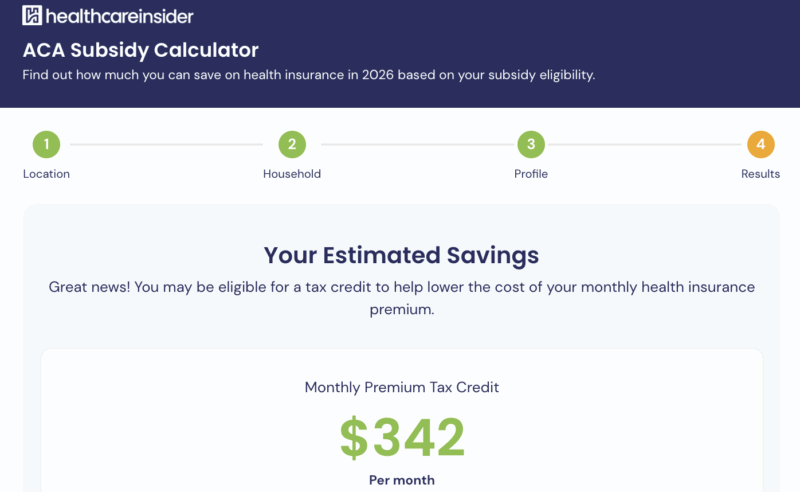Written by Michael LaPick
Healthcare Writer

Reviewed by Jeff Kritzer
We want to help you make educated healthcare decisions. While this post may have links to lead generation forms, this won’t influence our writing. We adhere to strict editorial standards to provide the most accurate and unbiased information.
What You Need to Know
- To sign up for an HSA, you need to enroll in a high-deductible health plan.
- HSAs offer many benefits, such as tax-free earnings over time. But they may not be a good fit for anyone who has chronic disases and needs expensive treatments.
- You can pay for medical expenses with an HSA. Withdrawing for nonmedical purchases may be taxed or penalized, depending on when you take out the money.
An Health Savings Account (HSA) is a common acronym used in the healthcare world but some people may not be aware of what it is or how it is used. It is a type of savings account that lets you set aside money on a pre-tax basis for qualified health costs.
How Do I Qualify for an HSA?
To qualify for an HSA you must be enrolled in a High-Deductible Health Plan (HDHP). For 2021, a HDHP is a plan with at least a $1,400 deductible for individuals and a $2,800 deductible for families. A HDHP typically requires a higher out-of-pocket cost for routine doctor visits but also has lower monthly premiums. Most HDHPs were designed for those who are relatively healthy and don’t have regular, expensive medical costs.
How Does an HSA Work?
Think of an HSA as a savings account with a bank. Meaning, these dollars are set aside for special expenditures, in this case, medical-related costs. An HSA holder will typically be issued a debit card that can be used to pay for things like dental exams, new glasses, doctor office visits, etc.
There is a limit to how much you can contribute to an HSA each year. For 2021, the limits are $3,600 for individuals and $7,200 for families. Those over the age of 55 can contribute an additional $1,000 annually to an HSA. Funds in an HSA rollover from one year to the next if you leave them unused.
Can I Use an HSA as an Investment Opportunity?
Some HSAs can be invested into growth opportunities, making them useful saving tools. Any value earned from these investments are also tax-free.
People have argued that HSAs could function similarly to a 401K since they can be used on any type of purchase (not just medical) after the age of 65. Also, depending on the company, the employer might match contributions to an HSA, further enticing employees to direct money to their HSA.
A note, though: if you use an HSA on a non-medical related expense after 65 you will pay income tax. And, if you’re under the age of 65 and use your HSA for non-qualified expenses, you’ll pay a 20 percent penalty.
Should I Get an HSA?
Well, that depends. The main purpose of an HSA is to cover medical expenses until individuals meet their high deductible. However, some individuals have experienced additional benefits, mainly that they haven’t had the stress of trying to pay for unexpected medical expenses. When spread over a fair amount of time, expensive and routine medical expenses can be covered by an HSA.
Katie McCue, 26, has had an HSA for four years. By putting money in her HSA, she has the funds ready when she is billed for medical expenses.
“In that time, I have not had to pay for any medical expenses out-of-pocket,” McCue said. “That has included an ER visit and many orthopedic services.”
On the other end of the spectrum, people who have chronic conditions with expensive treatments may find an HSA doesn’t provide the same advantages. Since a high deductible is necessary to qualify for an HSA, those with high medical costs may prefer a health plan with a lower deductible.
To help you decide, you should consider the following:
- Compare the premiums for each plan
- Compare the deductibles
- Check whether your employer contributes to an HSA and if so, how much
- Calculate your predictable medical costs
How Is An HSA Different From a Flexible Spending Account (FSA)?
There are several differences between a Flexible Spending Account (FSA) and a HSA, one being that FSAs are only offered through employers. If you get insurance on your own you can’t have a FSA.
Both types of accounts allow you to set aside pre-tax money into an account to be used for certain health costs. Like an HSA, there are limits to the amount of money you can save in an FSA. For an individual it’s $2,750. If you have a spouse, he/she can contribute an extra $2,750.
Unlike HSAs, though, FSAs don’t have to be tied to a HDHP. Additionally, FSAs have a “use it or lose it” factor. Employers can offer one of two options:
- Allow a grace period of 2.5 months after the end of the year to use the FSA funds.
- Allow the FSA holder to roll over a maximum of $500 into the next year.
Conversely, HSAs can be rolled over year after year, with no limit on how much can be rolled over. If you’re thinking you’d like to have both an HSA and FSA, know that you can’t have a regular FSA with an HSA. You can have what’s called a “limited purpose FSA,” which you can use only for dental and vision expenses.
Taking the Next Steps
Take a look at your current insurance coverage to see if it’s compatible with an HSA. Consider your own medical needs and whether a high deductible plan works best for you, which will help you decide if you want to open an HSA.
Thank you for your feedback!


 by
Jeff Kritzer |
Updated on
August 18, 2025
by
Jeff Kritzer |
Updated on
August 18, 2025 





